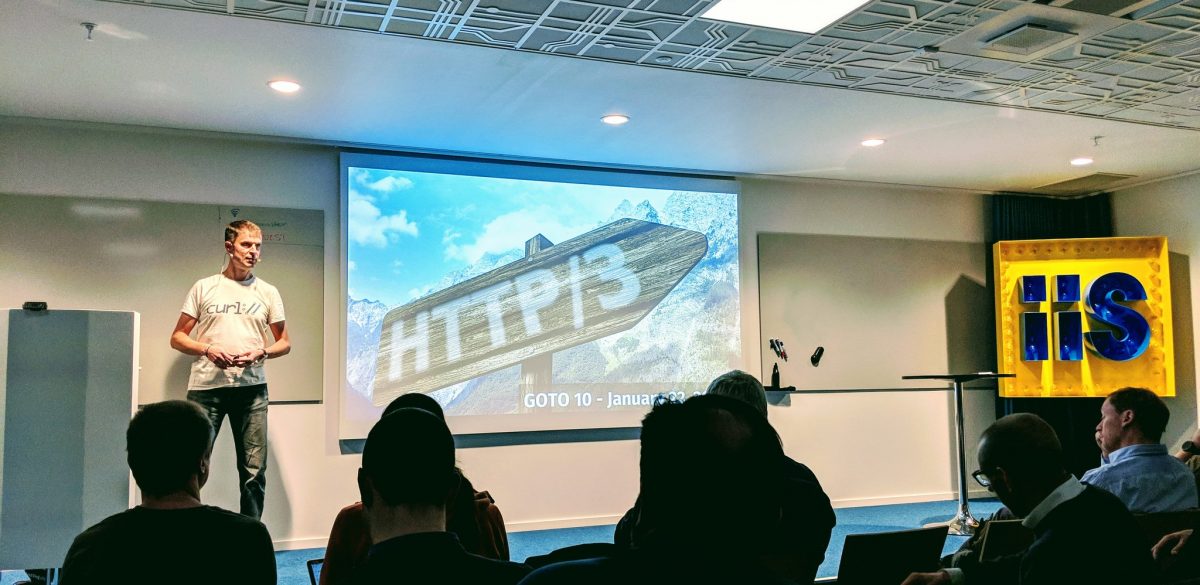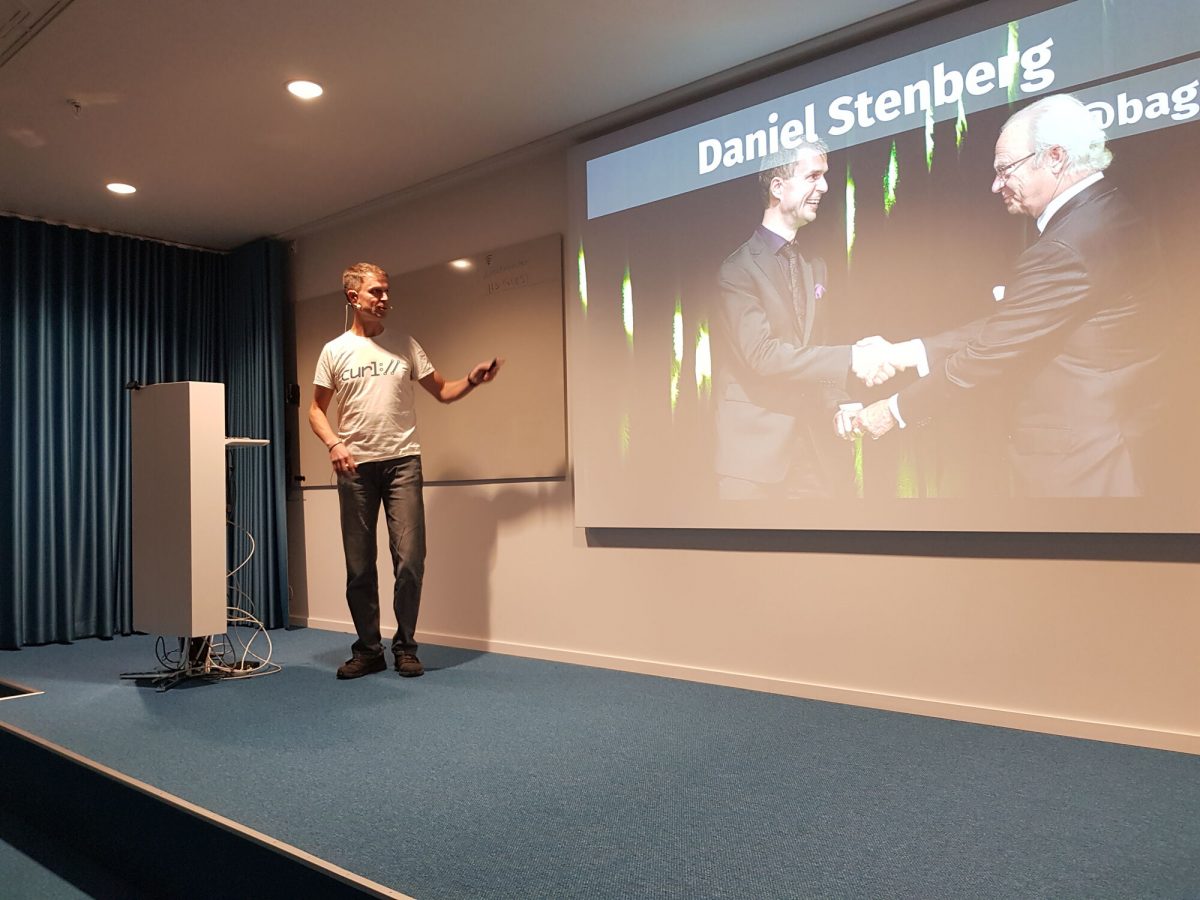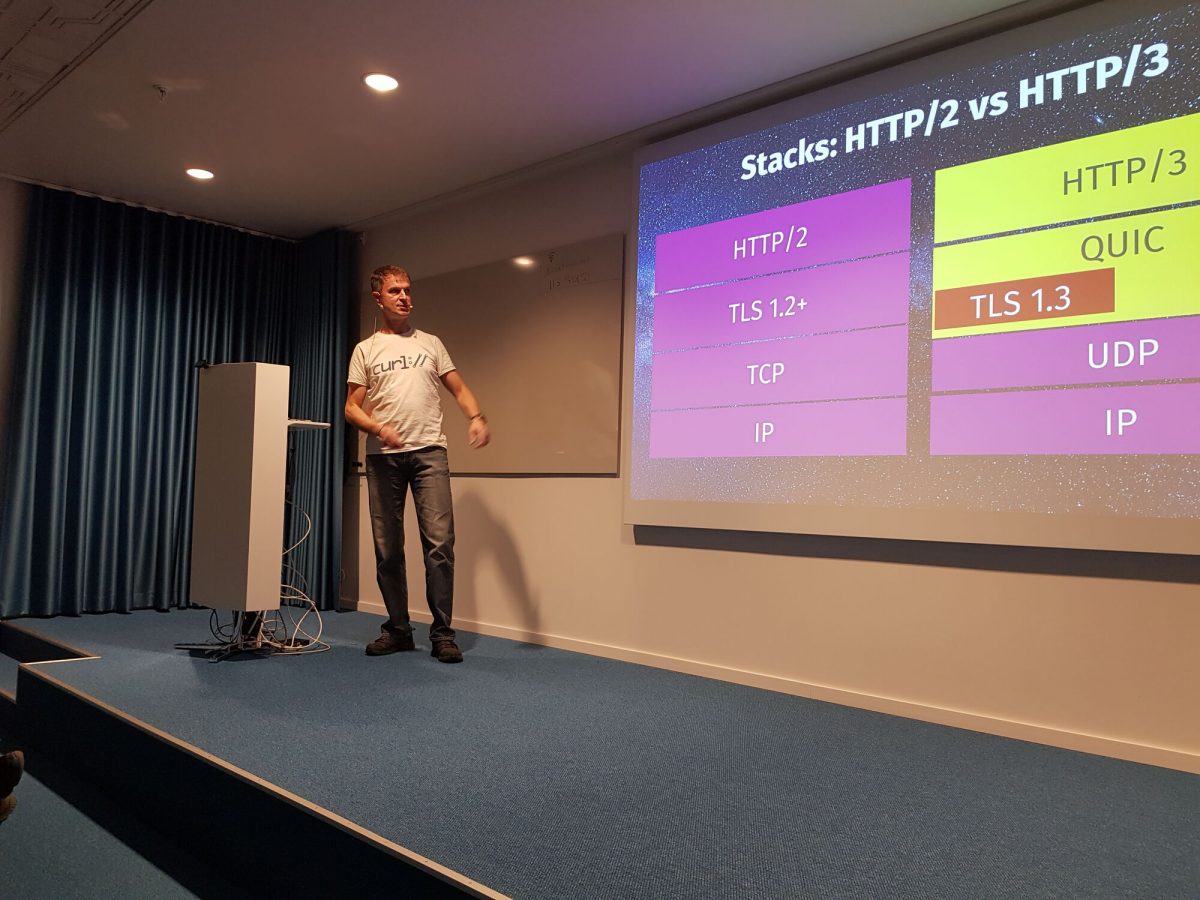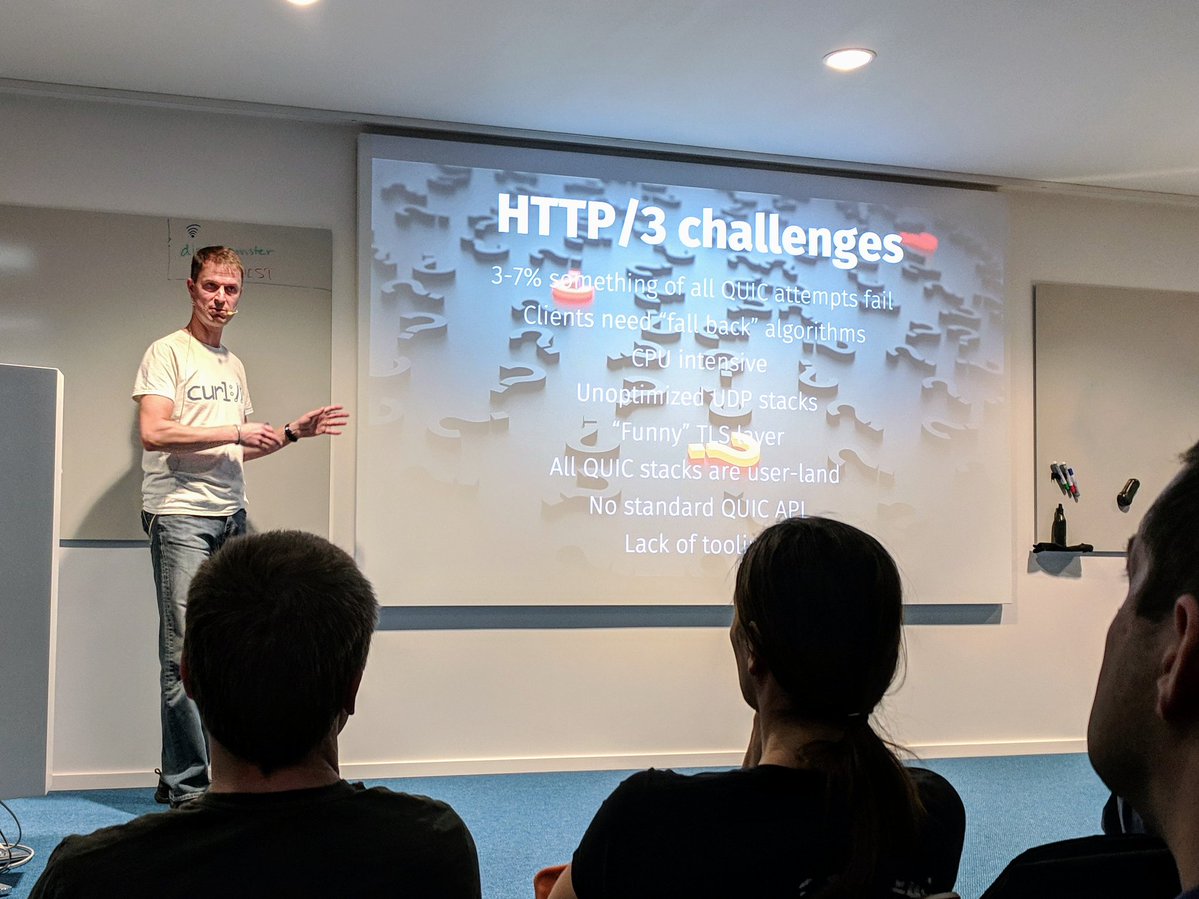The little men in your computer do this every time you open google.com
I found this video so hilarious and awesome that I simply had to also mention it here.
The little men in your computer do this every time you open google.com
I found this video so hilarious and awesome that I simply had to also mention it here.
This is the video recording of my talk with this title, done at February 4, 2024 10:00 in the K1.105 room at FOSDEM 2024. The room can hold some 800 people but there were a few hundred seats still unoccupied. Several people I met up with later have insisted that 10 am on a Sunday is way too early for attending talks…
When I was about to start my talk, the slides would not show on the projector. Yeah, sigh. Nothing surprising maybe, but you always hope you can avoid these problems – in particular in the last moment with a huge audience waiting.
There was this separate video monitor laptop that clearly showed that my laptop would output the correct thing – in a proper resolution (1280 x 720 as per auto-negotiation), but the projector refused to play ball. The live stream could also see my output, so the problem was somehow from the video box to the projector.
Several people eventually got involved, things were rebooted multiple times, cables were yanked and replugged in again. First after I installed arandr and forced-updated the resolution of my HDMI output to 1920×1080 the projector would suddenly show my presentation. (Later on I was told that people had the same problem in this room the day before…)
That was about nine minutes of technical difficulties that is cut out from the recording. Nine minutes to test my nerves and presentation finesse as I had to adapt.
On March 26th 2020, I did a live webinar where I talked about my roadmap visions of what to work on in curl during 2020.
Below you can see the youtube recording of the event.
You can also browse the slides separately.
I’ve watched how my thirteen year old son goes about to acquire information about things online. I am astonished how he time and time again deliberately chooses to get it from a video on YouTube rather than trying to find the best written documentation for whatever he’s looking for. I just have to accept that some people, even some descendants in my own family tree, prefer video as a source of information. And I realize he’s not alone.
So therefore, I bring you, the…
My intent is to record a series of short and fairly independent episodes, each detailing a specific libcurl area. A particular “thing”, feature, option or area of the APIs. Each episode is also thoroughly documented and all the source code seen on the video is available on the site so that viewers can either follow along while viewing, or go back to the code afterward as a reference. Or both!
I’ve done the four first episodes so far, and they range from five minutes to nineteen minutes a piece. I expect that it might take me a while to just complete the list of episodes I could come up with myself. I also hope and expect that readers and viewers will think of other areas that I could cover so the list of video episodes could easily expand over time.
If you have comments on the episodes. If you have suggestion of what to improve or subjects to cover, head over to the libcurl-video-tutorials github page and file an issue or two!
I use a Debian Linux installation to develop on. I figure it should be similar enough to many other systems.
Video wise, in each episode I show you my text editor for code, a terminal window for building the code, running what we build in the episode and also for looking up man page information etc. And a small image of myself. Behind those three squares, there’s a photo of a forest (taken by me).
I plan to make each episode use the same basic visuals.
In the initial “setup” episode I create a generic Makefile, which we can reuse in several (all?) other episodes to build the example code easily and swiftly. I’ve previously learned that people consider Makefiles difficult, or sometimes even magic, to work with so I wanted to get that out of the way from the start and then focus more directly on actual C code that uses libcurl.
Here’s the “receive data” episode as an example of how this can look.
Yesterday, I had attracted audience enough to fill up the largest presentation room GOTO 10 has, which means about one hundred interested souls.
The subject of the day was HTTP/3. The event was filmed with a mevo camera and I captured the presentation directly from my laptop as well, and I then stitched together the two sources into this final version late last night. As you’ll notice, the sound isn’t awesome and the rest of the “production” isn’t exactly top notch either, but hey, I don’t think it matters too much.




The slide set can also be viewed on slideshare.

I was invited speak at the GOTO Copenhagen conference that took place on October 5-6, 2015. A to me previously unknown conference that attracted over a thousand attendees in a hotel in central Copenhagen. According to the info desk, about 800 of these were from Denmark.
My talk was about HTTP/2 (again), which I guess doesn’t make any reader of this to raise his or hers eyebrows. I’d say there were about 200 persons in the audience as the room was fairly full. Probably one of the bigger audiences I’ve talked HTTP/2 to so far.
See you at ApacheCon on Friday!
14% HTTP/2 thanks to nginx ?
Brotli everywhere! Firefox, libbrotli
The –libcurl flaw is fixed (and it was GONE from github for a few hours)
No, the cheat sheet cannot be in the man page. But…
bug of the week: the http/2 performance fix
option of the week: -k
Talking at the GOTO Conference next week
Episode 41, just out:
http2 explained in markdown, translations. Swedish?
curl feature freeze period, release october 7
Bug of the week: Downloading a long sequence of URLs results in high CPU usage and slowness
Option of the week: -O
Today I hesitated to make my new weekly video episode. I looked at the viewers number and how they basically have dwindled the last few weeks. I’m not making this video series interesting enough for a very large crowd of people. I’m re-evaluating if I should do them at all, or if I can do something to spice them up…
… or perhaps just not look at the viewers numbers at all and just do what think is fun?
I decided I’ll go with the latter for now. After all, I enjoy making these and they usually give me some interesting feedback and discussions even if the numbers are really low. What good is a number anyway?
This week’s episode:
Personal
Firefox
Fun
HTTP/2
TALKS
curl
wget
I won’t keep posting every video update here, but I mostly wanted to mention that I’ve kept posting a weekly video over at youtube basically explaining what’s going on right now within my dearest projects. Mostly curl and some Firefox stuff.
This week: libcurl server cert verification API got a bashing at SEC-T, is HTTP for UDP a good idea? How about adding HTTP cache support to libcurl? HTTP/2 is getting deployed as we speak. Interesting curl bug when used by XBMC. The patch series for Firefox bug 939318 is improving slowly – will it ever land?